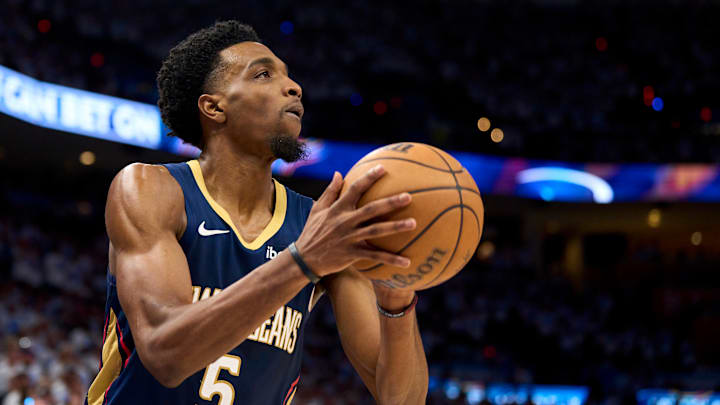Last season, the NBA implemented its new Collective Bargaining Agreement with the NBA Player Association. The latest iteration featured additional salary cap and contract amendments, including a dreaded second luxury tax apron that included steep penalties for any organizations over its threshold.
The New Orleans Pelicans should know better than any team in the NBA how serious the financial and roster-building implications of being in the second apron can be, considering that the new CBA was spearheaded by NBAPA President CJ McCollum.
Currently, New Orleans is a good deal under the first apron, so the franchise and Team Governor (Owner) Gayle Benson can rest easy for the time being. That will change quickly, though, as their players seek new deals in the coming years and the roster continues to evolve to fit team needs.
With this new CBA, and its intended purpose to help even the playing field for small-market teams and franchises with less wealthy owners, it's imperative that organizations find great value contracts to fill out their rosters alongside their franchise players and stars. The Pelicans currently have one of the greatest value contracts in the league in Herb Jones. If he can continue his growth in this one area, though, he could very well be the best contract in the NBA.
Herb Jones has to continue his shooting ascension
Unsurprisingly, the Pelicans could use a bit more shooting this upcoming season, along with some value contracts to help support their star-studded lineup. In Herb Jones, they have a player who could theoretically kill two birds with one stone — sorry for the crass metaphor, Pierre.
Jones entered the league expected to be a project: a great athlete with elite defensive tools but a rudimentary offensive skillset. He quickly proved his doubters and critics wrong by becoming a positive contributor in the NBA almost immediately. In his first two seasons, he did so without a reliable three-point shot, instead relying on transition opportunities and cutting into open spaces to do most of his damage on offense.
While that was fine for a first and second year player, and his top-tier defense made him a positive asset overall, his inability to space the floor made him a liability and kept him from being playable in clutch situations.
Since his first two seasons, he's markedly improved on the offensive end of the court. He's steadily grown his playmaking, as well as his off-dribble game, becoming an adequate connective piece for the Pelicans. He's also become one of the most dangerous transition threats in the game, capable of taking the ball coast-to-coast himself or catching and finishing a lob or dump-off from his numerous ball-handler teammates.
Most importantly, though, he showcased a significantly improved deep shot. Last season, Jones stroked nearly 42 percent of his triples after hitting on just 34 percent from beyond the arc in his first two campaigns. Not only did he increase his accuracy, he also upped his output, going from 2.2 and 2.5 three-point attempts in his first two years to 3.6 deep tries per game last season.
He also showed development as a shooter throughout the year in 2023-24. He notched seven games with four or more triples last season, all of which came after the new calendar year. This is a great sign for his projected, continued growth as a sniper — something that the Pelicans desperately need from him next season.
In 2024-25, New Orleans will need him to maintain his marksmanship while vastly increasing his output as a deep shooter. The Pelicans are lacking in three-point shooting on the roster, so they'll need to find increased production from internal development, and Herb Jones is one of the best candidates to draw that from. If he can get to between six and eight three-point attempts per game while maintaining a 38 percent mark, it'll do wonders for New Orleans's chances as a dark-horse contender, and it'll guarantee that he'll be one of the best bargain contracts in the entire league.
